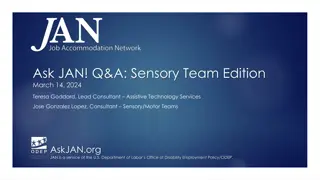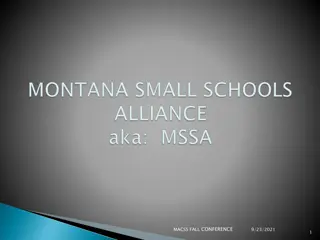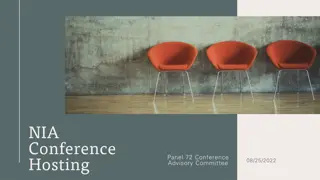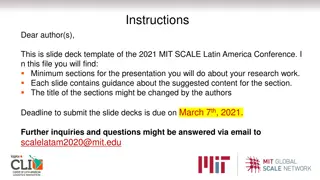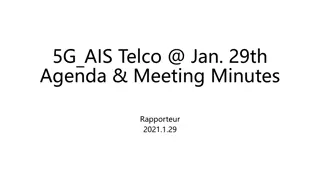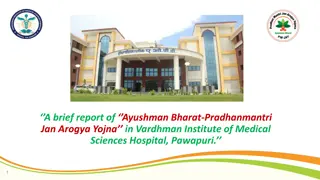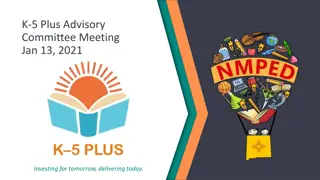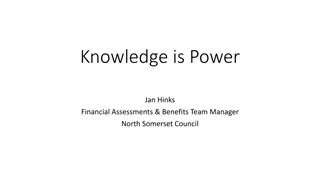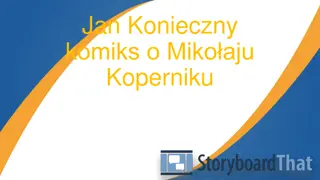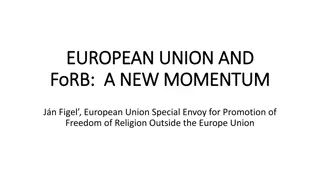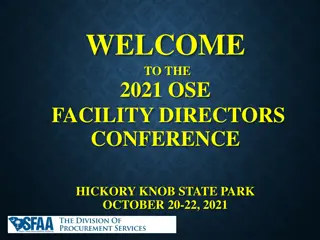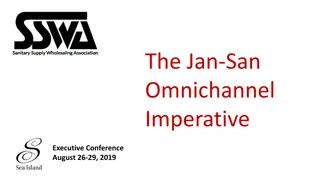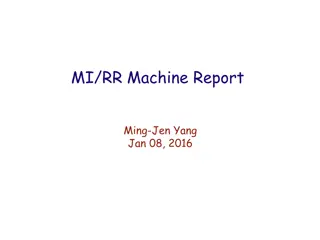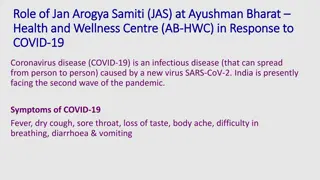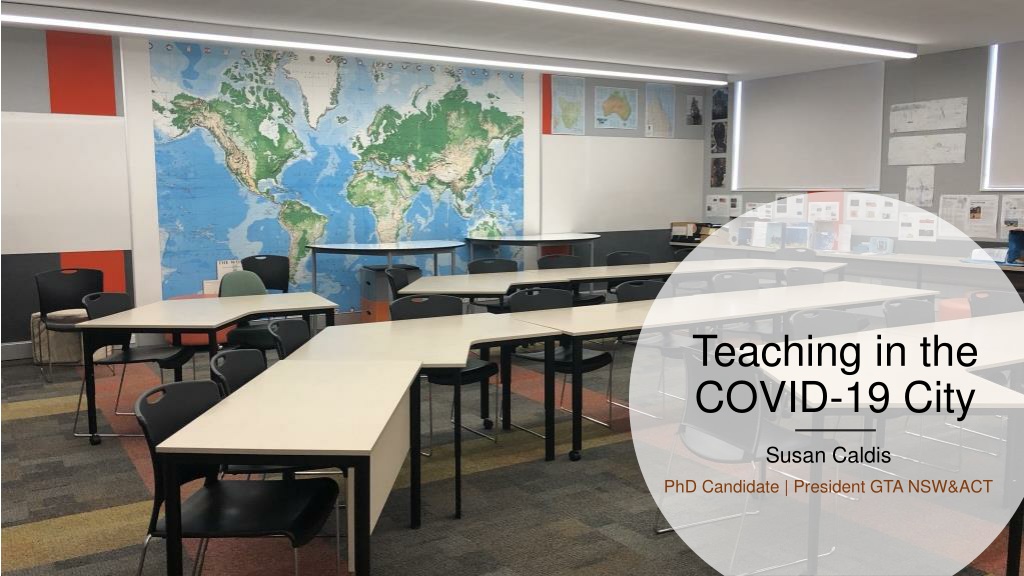
Exploring Geography Education Innovations in a COVID-19 City
Delve into the realm of geography education amidst the COVID-19 pandemic with Susan Caldis, a PhD Candidate and President of GTA NSW&ACT. Discover key directions, evidence-informed policies, and the importance of enhancing geography education quality and visibility. Uncover insights on initial teacher education possibilities and practical strategies to strengthen the field. Join the conversation on understanding the COVID-19 city through a collective biography and digital storytelling approach shared by Dr. Dallas Rogers, Senior Lecturer and Founder of City Road Podcast at the University of Sydney.
Uploaded on | 0 Views
Download Presentation

Please find below an Image/Link to download the presentation.
The content on the website is provided AS IS for your information and personal use only. It may not be sold, licensed, or shared on other websites without obtaining consent from the author. If you encounter any issues during the download, it is possible that the publisher has removed the file from their server.
You are allowed to download the files provided on this website for personal or commercial use, subject to the condition that they are used lawfully. All files are the property of their respective owners.
The content on the website is provided AS IS for your information and personal use only. It may not be sold, licensed, or shared on other websites without obtaining consent from the author.
E N D
Presentation Transcript
Teaching in the COVID-19 City Susan Caldis PhD Candidate | President GTA NSW&ACT
Overview Background: Key directions in geography education Context of the podcast: Listening to the City in a global pandemic The podcast and its messages: Teaching in the COVID-19 City Learning from the research: Possibilities for Initial Teacher Education In conclusion Questions, comments
Background: Key directions in geography education Evidence-informed policy: international to local A Road Map for 21stCentury Geography Education (Bednarz et al., 2013) International Declaration on Research in Geography Education (International Geographical Union- Commission on Geographical Education, 2015) Geography: Shaping Australia s Future (National Committee for Geographical Sciences, 2018) Key messages: (i) improve the quality of initial teacher education and teacher education in Geography; and (ii) strengthen the status and visibility of geography in schools and of geography education as a field of research
Background: Key directions in geography education Enact the key directions in geographical education by looking at the outcomes of geography educator practice for the geography educator rather than in the context of student learning outcomes (Catling, 2017); assessing the suitability of geography methodology courses within Initial Teacher Education Programs (Mitchell, 2018); posing interdisciplinary or multidisciplinary empirical research questions to understand the transformation of practice and implications for geography education (Butt, 2015; Solem & Boehm, 2017, 2018); and increasing the collaboration between school and university geographers (National Committee for Geographical Sciences, 2018).
Context of the podcast: Understanding the COVID-19 City A collective biography and digital story-telling method; 25 scholars; A mix of personal and academically- grounded readings, and personal in- the-moment reflections about how the cities were being impacted as a result of the COVID-19 pandemic. Dr. Dallas Rogers | Senior Lecturer | Founder: City Road Podcast | University of Sydney, School of Architecture, Design and Planning
Developing the podcast: Listening to the City in a global pandemic The rapidly mobilized timeline: 24 March: An email What would be amazing from you is a reflection of being a teaching within the COVID-19 city 25 26 March: Mobilising 10 Geography teachers; Creating the podcast 23 March: A twitter call to participate (i) What is it like to try to teach students in Sydney at the moment? (ii) How do you teach through a pandemic? (iii) What are students like at this time? 2 days; 1 podcast; 4 minutes; 3 questions, 10 Geography teachers 3 April: 25 podcasts go live on City Road Podcast and via The Conversation 13 April 8 May : Collaborative development of an article about the project; 2 review processes; article accepted for publication; 25 authors 27 March: The due-date for the podcast
Developing the podcast: Teaching in the COVID-19 City 3 open-ended questions 10 Geography teacher participants - 3 x first year out - 3 x early career (3 5 years experience) - 4 x experienced (12 years + experience) Theory of Reflexivity (Archer, 1982, 2010) framework; conceptualized around pedagogy and reflexive practice 4 minutes https://cityroadpod.org/2020/03/29/listening-to-the-city-in-a- global-pandemic/
The sound of the city we hear throughout the broader podcast is almost defined by an absence of the familiar; and this opens up the possibility for thinking about different futures. The city under COVID-19: Podcasting as a digital methodology. Journal of Economic and Social Geography * * * * It is a great opportunity to teach in this manner, we have changed from teaching in the traditional classroom to something vastly different in just over a day, revolutionary almost Early career teacher Messages from the podcast: Thinking about possibilities for Initial Teacher Education you adapt, you improvise, and you overcome. 1st year out teacher
Im feeling proud, I just taught my first ever zoom lesson today and it worked. An experienced Geography teacher Intense yet innovative A mid- career teacher Messages from the podcast: It is challenging and intriguing all at once but you have to overcome this challenge otherwise the students will not be taught well A 1st year out teacher Such reflections reveal a sense of hesitation, relief, excitement, and of fingers-being-crossed whilst enacting lessons in a technology-enabled way. What is it that is not here anymore? we need to this of ask ourselves, and then we need to ask how we might take action to include the absence in a new way, or render the absence obsolete and introduce new ways of being and areas of focus Thinking about possibilities for Initial Teacher Education
Analysing the podcast: Teaching in the COVID-19 City Reflexivity theory willingness to identify and consider influences that enable and constrain our practice (Archer, 1982, 2010) Anti-fragility responding to shock by getting stronger (Norman, 2020) Emergent Property Personal; Structural; Cultural Decision- making process Discern; Deliberate; Dedicate Influence Enabling; Constraining Anti-fragile, responsive, ready-to-learn, resilient, reflexive practitioners
Learn about, model, and explicitly teach about how to create and operate within an online learning community in a technology-enhanced offering (Schultz, 2020) A curatorial podcasting and collective writing process as an interactive collaborative method and reflexive tool, to form new communities, share voices, and reflect on experiences (Rogers et al., 2020) Learning from the research: Thinking about possibilities for Seek and enact upon student voice and choice; Develop and retain the course narrative from the assessment to the modules to the course as a whole: emphasise course outcome(s); align content with student aspirations; use synchronous and asynchronous approaches within the course; clarify the process of learning; students evaluate online materials based on what they find interesting, and what they deem to be a value-add investment in exchange for their time (Eager et al., 2020) Initial Teacher Education: pedagogy and reflexive practice
Show the interdisciplinary nature of Geography and its cross-school application; Model exemplary pedagogical practice and show the use of inquiry in a competent critical way (Mitchell, 2018) Learning from the research: Emphasise the key concepts and process of geographical thinking to engage with personal and local geographies (Blankman et al., 2016; Brooks, 2017; Catling & Martin, 2011, Roberts, 2021) Thinking about possibilities for Develop a course to develop a confident geography educator who is willing to find their buy-in and pitch, to curriculum- make and challenge the narrative about geography as a subject, and therefore to lead the way in showing how geography could be taught - whether that teacher education student has a Geography major or not (Susan ) Geography Methodology
Pedagogic and reflexive outcomes from the research: Teaching in the COVID-19 City From the 1st-year-out & early-career respondents - noticing and re-creating online learning communities - modelling and advising faculty- members about technology-enhanced teaching and learning in Geography; - actively seeking guidance about catering for diversity in an online domain; - actively seeking coaching and mentoring how to be, and to be; - applying the COVID-19 pandemic into programs across Stage 4 6 Geography
In conclusion: Responding to key directions in geography education (in a small way) By focusing on increasing collaboration between school and university geographers (National Committee for Geographical Sciences, 2018) It was possible to look at the outcomes of geography educator practice for the geography educator rather than in the context of student learning outcomes (Catling, 2017) albeit briefly and at an extraordinary moment in time And in so doing assess the suitability of geography methodology courses within Initial Teacher Education Programs (Mitchell, 2018); and pose interdisciplinary or multidisciplinary empirical research questions to understand the transformation of practice and implications for geography education (Butt, 2015; Solem & Boehm, 2018)
Questions, comments Background: Key directions in geography education Context of the podcast: Listening to the City in a global pandemic The podcast: Teaching in the COVID-19 City Messages from the podcast and research: Possibilities for Initial Teacher Education Thank you susan.caldis@hdr.mq.edu.au | @SusanCaldis
Selected references Brooks, C., Butt, G., & Fargher, M., (Eds) (2017). The Power of Geographical Thinking. Springer International Publishing AG Butt, G., (Ed.) (2015). Master Class in geography education: Transforming teaching and learning. Bloomsbury Academic Catling, S. (2017). Not nearly enough Geography! University provision for England s pre-service primary teachers. Journal of Geography in Higher Education, 41(3), 434 458. https://doi.org/10.1080/03098265.2017.1331422 City Road Podcast. (2020). Listening to the city in a global pandemic https://cityroadpod.org/2020/03/29/listening-to-the-city-in-a-global- pandemic/ Eager, B.E., Lehman, K., Schollard. J.M. (2020). Introducing the tri-layered student online experience framework: Moving from file respository to narrative journey. Journal of Applied Learning and Teaching, 3(1), 1 7. https://doi.org/10.37074/jalt.2020.3.s1.8 Mitchell, J. (2018). Pre-service teachers learn to teach Geography: A suggested course model. Journal of Geography in Higher Education National Committee for Geographical Sciences. (2018). Geography: Shaping Australia s Future. Australian Academy of Science https://www.science.org.au/files/userfiles/support/reports-and-plans/2018/geography- decadal-plan.pdf Norman, P. (2020, August 10). The shock of dealing with COVID-19 has made teachers even stronger and better at their craft. AARE Edu Research Matters https://www.aare.edu.au/blog/?p=7103 Roberts, M. (2021). Why is powerful knowledge not enough? The power depends on powerful pedagogy. Keynote for Future Teachers of the Planet: Building powerful knowledge for better ESD in teacher training, E-symposium Rogers, D., Herbert, M., Whitzman, C., McCann, E., Maginn, P.J., Watts, B., Alam, A., Pill, M., Keil, R., Dreher, T., Novacevskil M., Byrne, J., Osborne, N., Budenbender, M., Alizadeh, T., Murray, K., Dombroski, K., Prasad, D., Connolloy, C., Kass, A., Dale, E., Murray, C., & Caldis., S., (2020). The city under COVID-19: Podcasting as digital methodology. Journal of Economic and Social Geography, 111(3), 434 450. https://doi.org/10.1111/tesg.12426 Schultz, R. (2020). Day 16 - Remote Learning or Online Learning: What s the Difference? With Special Guest, Dr. Mike DeMers 19-19-19 COVIDeos 19, E-Learning Webinars, 16. https://digitalcommons.imsa.edu/covideos_19_webinars/16 Solem, M., & Boehm, R.G. (2018). Research in geography education: moving from declarations and road maps to actions. International Research in Geographical and Environmental Education, 27(3), 191 198. https://doi.org/10.1080/10382046.2018.1493896
Teaching in the COVID-19 City Susan Caldis PhD Candidate | President GTANSW-ACT Susan.Caldis@hdr.mq.edu.au @SusanCaldis


